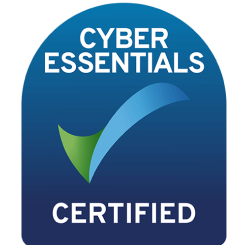Being a bookkeeper may not be the most exciting job in the world (to some, at least), but it is a stable career path that can help you grow. Still, recording transitions, processing payroll, and reconciling bank accounts all day long in a dusty office situated in the basement of a corporate building doesn’t sound so appealing.
I must tell you that bookkeepers have many more tasks on their plates. Also, not all the accounting offices are sad, windowless cubicles. Some offices even have a view!
But what if you could do your job in the comfort of your own home? Or while traveling the world? Would the idea of a well-paid and respected position that brings stable income be more appealing?
This is what a virtual bookkeeper does – they do all the things a traditional bookkeeper does, but remotely, via a secure online connection. Plus, you can choose to be employed or work as a contractor (in which case, you can have more clients).
Being a virtual bookkeeper brings you job flexibility, the freedom to choose your clients, work-life balance, and access to a market where the need for your services is on the rise. If all these have piqued your interest, read on to learn more!
How Does This Work?
As a traditional bookkeeper, your job is to help businesses manage their finances effectively and efficiently. You will also provide comprehensive financial reports monthly, quarterly, and annually to ensure your clients get a clear picture of their company’s financial health.
A virtual bookkeeper can do all these and more from a remote location. You don’t even have to live in the same city or county as your clients. As long as you have the legal right to work as a bookkeeper and there is a work contract between all parties involved, you can perform your tasks from any location you want.
Work Schedule & Tools
So does this mean you can set your own working hours?
This depends on your status. You can decide your own work schedule if you work as a contractor. However, if you are a remote employee, your employer will be the one deciding your schedule.
So before you start dreaming about lazy mornings and 4-hour work weeks, make sure you understand the difference between being employed and working as a contractor. Moreover, even as a contractor, you won’t be able to laze around. If you don’t have a strict work schedule, work will soon start to pile up, which is when mistakes and missed deadlines start to appear.
Whether you are a virtual or a traditional bookkeeper, your work has to be accurate and in accordance with the customer’s data. Any mistake can lead to ill-informed decisions, which can have devastating consequences for a business’s growth.
When you work remotely (especially as a contractor), you will have to get your own tools. For this, you will need a reliable cloud-based service where you can safely store your customers’ financial data and documents. And depending on your tasks, you may also need payroll processing software, accounting software, and more.
If you want to learn more about accounting software, check out our latest blog on the 5 key advantages of accounting software for your UK business.
Keeping Track of Your Expenses
When you’re working on your own (even as an employee), you have to keep accurate track of your work or business expenses. For instance, if you have to travel for business (to meet with your employer or to clients’ headquarters), you must keep a log of travel expenses.
In this case, it’s also important to understand the different types of travel expenses in the UK since some of them are tax deductible. You should also know what other business expenses can be claimed to ensure you pay the right amount in taxes.
Professional Development and Growth
One benefit of working as a virtual bookkeeper is the ability to tap into industry-specific knowledge and expertise. For instance, you can find ways to collaborate with other professionals in remote bookkeeping services or digital platforms. This way, you’ll have access to valuable insights and stay up-to-date with accounting best practices.
As a remote worker, you will have more time to focus on your own growth since you don’t have to worry about commuting and meaningless meetings. Moreover, you can take accounting courses online to boost your skills and add a specialization to your portfolio.
In the end, as your skills grow, so will your earning potential and your client base.
You can also read about bookkeeping in our latest blog, What is Bookkeeping? (Responsibilities of a Bookkeeper).
How Much Can I Earn?
Speaking of earning potential, how much does a virtual bookkeeper make?
According to recent data, an experienced professional can earn around £35k per year as an employee. However, as a contractor, you have the option to work with several clients at once, which will only increase your earnings.
Also, as an experienced professional, you can add different earning streams to your business. For instance, you can create educational content and build an online following which can be monetised.
In summary, as a virtual bookkeeper, you are the one who decides where your earning potential stops.
Benefits You Shouldn’t Ignore
Besides a more flexible schedule and better control over your professional and personal life, working as a virtual bookkeeper comes with a series of perks that are difficult to ignore.
Here are a few worth mentioning:
– It’s easier to offer cost-effective services to other businesses;
– You can easily adjust to clients’ needs;
– You will have a more stable work-life balance;
– It’s a great opportunity to network and meet other professionals;
– It’s more likely that you will interact with the newest technologies in the field;
– You have to stay up to date with the latest news, so you’ll always be ahead of the competition.
Wrap Up
Virtual bookkeeping is at the sweet spot between financial efficiency and flexibility. And, as a remote bookkeeper, you get to manage the finances of businesses from a wide range of fields and enhance your skills.
Plus, you don’t have to deal with annoying coworkers, dusty offices, or insufferable managers. You get to have control over your professional life and environment, and you are the one deciding on your growth path. Pretty neat, right?


![]() 6 minutes
6 minutes
































